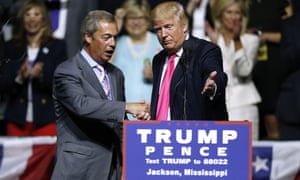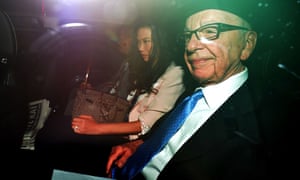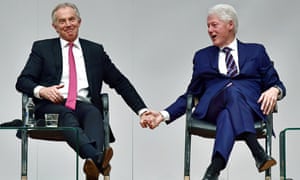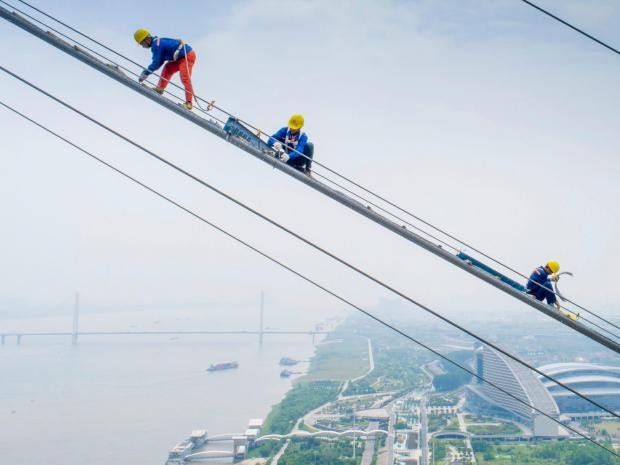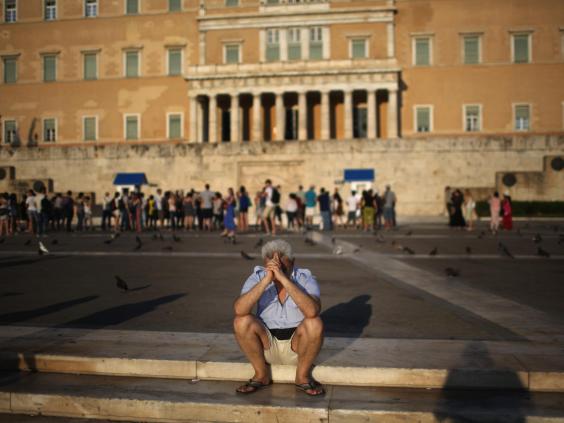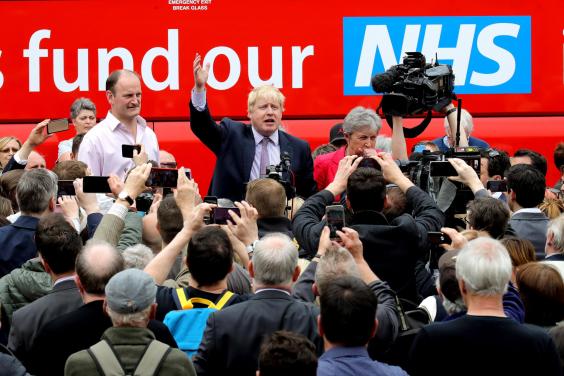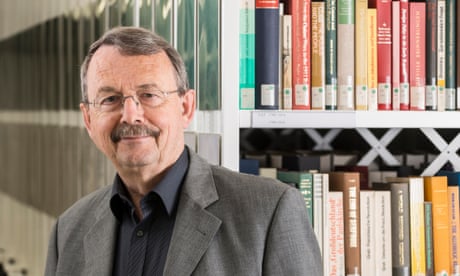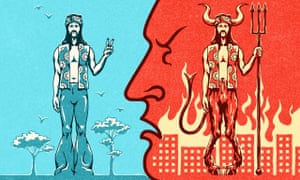For hundreds of years, modern societies have depended on something that is so ubiquitous, so ordinary, that we scarcely ever stop to notice it: trust. The fact that millions of people are able to believe the same things about reality is a remarkable achievement, but one that is more fragile than is often recognised.
At times when public institutions – including the media, government departments and professions – command widespread trust, we rarely question how they achieve this. And yet at the heart of successful liberal democracies lies a remarkable collective leap of faith: that when public officials, reporters, experts and politicians share a piece of information, they are presumed to be doing so in an honest fashion.
The notion that public figures and professionals are basically trustworthy has been integral to the health of representative democracies. After all, the very core of liberal democracy is the idea that a small group of people – politicians – can represent millions of others. If this system is to work, there must be a basic modicum of trust that the small group will act on behalf of the much larger one, at least some of the time. As the past decade has made clear, nothing turns voters against liberalism more rapidly than the appearance of corruption: the suspicion, valid or otherwise, that politicians are exploiting their power for their own private interest.
This isn’t just about politics. In fact, much of what we believe to be true about the world is actually taken on trust, via newspapers, experts, officials and broadcasters. While each of us sometimes witnesses events with our own eyes, there are plenty of apparently reasonable truths that we all accept without seeing. In order to believe that the economy has grown by 1%, or to find out about latest medical advances, we take various things on trust; we don’t automatically doubt the moral character of the researchers or reporters involved.
Much of the time, the edifice that we refer to as “truth” is really an investment of trust. Consider how we come to know the facts about climate change: scientists carefully collect and analyse data, before drafting a paper for anonymous review by other scientists, who assume that the data is authentic. If published, the findings are shared with journalists in press releases, drafted by university press offices. We expect that these findings are then reported honestly and without distortion by broadcasters and newspapers. Civil servants draft ministerial speeches that respond to these facts, including details on what the government has achieved to date.
A modern liberal society is a complex web of trust relations, held together by reports, accounts, records and testimonies. Such systems have always faced political risks and threats. The template of modern expertise can be traced back to the second half of the 17th century, when scientists and merchants first established techniques for recording and sharing facts and figures. These were soon adopted by governments, for purposes of tax collection and rudimentary public finance. But from the start, strict codes of conduct had to be established to ensure that officials and experts were not seeking personal gain or glory (for instance through exaggerating their scientific discoveries), and were bound by strict norms of honesty.
But regardless of how honest parties may be in their dealings with one another, the cultural homogeneity and social intimacy of these gentlemanly networks and clubs has always been grounds for suspicion. Right back to the mid-17th century, the bodies tasked with handling public knowledge have always privileged white male graduates, living in global cities and university towns. This does not discredit the knowledge they produce – but where things get trickier is when that homogeneity starts to appear to be a political identity, with a shared set of political goals. This is what is implied by the concept of “elites”: that purportedly separate domains of power – media, business, politics, law, academia – are acting in unison.
A further threat comes from individuals taking advantage of their authority for personal gain. Systems that rely on trust are always open to abuse by those seeking to exploit them. It is a key feature of modern administrations that they use written documents to verify things – but there will always be scope for records to be manipulated, suppressed or fabricated. There is no escaping that possibility altogether. This applies to many fields: at a certain point, the willingness to trust that a newspaper is honestly reporting what a police officer claims to have been told by a credible witness, for example, relies on a leap of faith.
A trend of declining trust has been underway across the western world for many years, even decades, as copious survey evidence attests. Trust, and its absence, became a preoccupation for policymakers and business leaders during the 1990s and early 2000s. They feared that shrinking trust led to higher rates of crime and less cohesive communities, producing costs that would be picked up by the state.
What nobody foresaw was that, when trust sinks beneath a certain point, many people may come to view the entire spectacle of politics and public life as a sham. This happens not because trust in general declines, but because key public figures – notably politicians and journalists – are perceived as untrustworthy. It is those figures specifically tasked with representing society, either as elected representatives or as professional reporters, who have lost credibility.
To understand the crisis liberal democracy faces today – whether we identify this primarily in terms of “populism” or “post-truth” – it’s not enough to simply bemoan the rising cynicism of the public. We need also to consider some of the reasons why trust has been withdrawn. The infrastructure of fact has been undermined in part by a combination of technology and market forces – but we must seriously reckon with the underlying truth of the populists’ charge against the establishment today. Too often, the rise of insurgent political parties and demagogues is viewed as the source of liberalism’s problems, rather than as a symptom. But by focusing on trust, and the failure of liberal institutions to sustain it, we get a clearer sense of why this is happening now.
The problem today is that, across a number of crucial areas of public life, the basic intuitions of populists have been repeatedly verified. One of the main contributors to this has been the spread of digital technology, creating vast data trails with the latent potential to contradict public statements, and even undermine entire public institutions. Whereas it is impossible to conclusively prove that a politician is morally innocent or that a news report is undistorted, it is far easier to demonstrate the opposite. Scandals, leaks, whistleblowing and revelations of fraud all serve to confirm our worst suspicions. While trust relies on a leap of faith, distrust is supported by ever-mounting piles of evidence. And in Britain, this pile has been expanding much faster than many of us have been prepared to admit.
Confronted by the rise of populist parties and leaders, some commentators have described the crisis facing liberalism in largely economic terms – as a revolt among those “left behind” by inequality and globalisation. Another camp sees it primarily as the expression of cultural anxieties surrounding identity and immigration. There is some truth in both, of course – but neither gets to the heart of the trust crisis that populists exploit so ruthlessly. A crucial reason liberalism is in danger right now is that the basic honesty of mainstream politicians, journalists and senior officials is no longer taken for granted.
There are copious explanations for Trump, Brexit and so on, but insufficient attention to what populists are actually saying, which focuses relentlessly on the idea of self-serving “elites” maintaining a status quo that primarily benefits them. On the right, Nigel Farage has accused individual civil servants of seeking to sabotage Brexit for their own private ends. On the left, Jeremy Corbyn repeatedly refers to Britain’s “rigged” economic system. The promise to crack down on corruption and private lobbying is integral to the pitch made by figures such as Donald Trump, Jair Bolsonaro or Viktor Orbán.
One of the great political riddles of recent years is that declining trust in “elites” is often encouraged and exploited by figures of far more dubious moral character – not to mention far greater wealth – than the technocrats and politicians being ousted. On the face of it, it would seem odd that a sense of “elite” corruption would play into the hands of hucksters and blaggards such as Donald Trump or Arron Banks. But the authority of these figures owes nothing to their moral character, and everything to their perceived willingness to blow the whistle on corrupt “insiders” dominating the state and media.
Liberals – including those who occupy “elite” positions – may comfort themselves with the belief that these charges are ill-founded or exaggerated, or else that the populists offer no solutions to the failures they identify. After all, Trump has not “drained the swamp” of Washington lobbying. But this is to miss the point of how such rhetoric works, which is to chip away at the core faith on which liberalism depends, namely that power is being used in ways that represent the public interest, and that the facts published by the mainstream media are valid representations of reality.
Populists target various centres of power, including dominant political parties, mainstream media, big business and the institutions of the state, including the judiciary. The chilling phrase “enemies of the people” has recently been employed by Donald Trump to describe those broadcasters and newspapers he dislikes (such as CNN and the New York Times), and by the Daily Mail to describe high court judges, following their 2016 ruling that Brexit would require parliamentary consent. But on a deeper level, whether it is the judiciary, the media or the independent civil service that is being attacked is secondary to a more important allegation: that public life in general has become fraudulent.
Nigel Farage campaigning with Donald Trump in 2016. Photograph: Jonathan Bachman/Getty Images
How does this allegation work? One aspect of it is to dispute the very possibility that a judge, reporter or expert might act in a disinterested, objective fashion. For those whose authority depends on separating their public duties from their personal feelings, having their private views or identities publicised serves as an attack on their credibility. But another aspect is to gradually blur the distinctions between different varieties of expertise and authority, with the implication that politicians, journalists, judges, regulators and officials are effectively all working together.
It is easy for rival professions to argue that they have little in common with each other, and are often antagonistic to each other. Ostensibly, these disparate centres of expertise and power hold each other in check in various ways, producing a pluralist system of checks and balances. Twentieth-century defenders of liberalism, such as the American political scientist Robert Dahl, often argued that it didn’t matter how much power was concentrated in the hands of individual authorities, as long as no single political entity was able to monopolise power. The famous liberal ideal of a “separation of powers” (distinguishing executive, legislative and judicial branches of government), so influential in the framing of the US constitution, could persist so long as different domains of society hold one another up to critical scrutiny.
But one thing that these diverse professions and authorities do have in common is that they trade primarily in words and symbols. By lumping together journalists, judges, experts and politicians as a single homogeneous “liberal elite”, it is possible to treat them all as indulging in a babble of jargon, political correctness and, ultimately, lies. Their status as public servants is demolished once their claim to speak honestly is thrown into doubt. One way in which this is done is by bringing their private opinions and tastes before the public, something that social media and email render far easier. Tensions and contradictions between the public face of, say, a BBC reporter, and their private opinions and feelings, are much easier to discover in the age of Twitter.
Whether in the media, politics or academia, liberal professions suffer a vulnerability that a figure such as Trump doesn’t, in that their authority hangs on their claim to speak the truth. A recent sociological paper called The Authentic Appeal of the Lying Demagogue, by US academics Oliver Hahl, Minjae Kim and Ezra Zuckerman Sivan, draws a distinction between two types of lies. The first, “special access lies”, may be better termed “insider lies”. This is dishonesty from those trusted to truthfully report facts, who abuse that trust by failing to state what they privately know to be true. (The authors give the example of Bill Clinton’s infamous claim that he “did not have sexual relations with that woman”.)
The second, which they refer to as “common knowledge lies”, are the kinds of lies told by Donald Trump about the size of his election victory or the crowds at his inauguration, or the Vote Leave campaign’s false claims about sending “£350m a week to the EU”. These lies do not pretend to be bound by the norm of honesty in the first place, and the listener can make up their own mind what to make of them.
What the paper shows is that, where politics comes to be viewed as the domain of “insider” liars, there is a seductive authenticity, even a strange kind of honesty, about the “common knowledge” liar. The rise of highly polished, professional politicians such as Tony Blair and Bill Clinton exacerbated the sense that politics is all about strategic concealment of the truth, something that the Iraq war seemed to confirm as much as anything. Trump or Farage may have a reputation for fabricating things, but they don’t (rightly or wrongly) have a reputation for concealing things, which grants them a form of credibility not available to technocrats or professional politicians.
At the same time, and even more corrosively, when elected representatives come to be viewed as “insider liars”, it turns out that other professions whose job it is to report the truth – journalists, experts, officials – also suffer a slump in trust. Indeed, the distinctions between all these fact-peddlers start to look irrelevant in the eyes of those who’ve given up on the establishment altogether. It is this type of all-encompassing disbelief that creates the opportunity for rightwing populism in particular. Trump voters are more than twice as likely to distrust the media as those who voted for Clinton in 2016, according to the annual Edelman Trust Barometer, which adds that the four countries currently suffering the most “extreme trust losses” are Italy, Brazil, South Africa and the US.
It’s one thing to measure public attitudes, but quite another to understand what shapes them. Alienation and disillusionment develop slowly, and without any single provocation. No doubt economic stagnation and soaring inequality have played a role – but we should not discount the growing significance of scandals that appear to discredit the honesty and objectivity of “liberal elites”. The misbehaviour of elites did not “cause” Brexit, but it is striking, in hindsight, how little attention was paid to the accumulation of scandal and its consequences for trust in the establishment.
The 2010 edition of the annual British Social Attitudes survey included an ominous finding. Trust in politicians, already low, had suffered a fresh slump, with a majority of people saying politicians never tell the truth. But at the same time, interest in politics had mysteriously risen.
To whom would this newly engaged section of the electorate turn if they had lost trust in “politicians”? One answer was clearly Ukip, who experienced their greatest electoral gains in the years that followed, to the point of winning the most seats in the 2014 elections for the European parliament. Ukip’s surge, which initially appeared to threaten the Conservative party, was integral to David Cameron’s decision to hold a referendum on EU membership. One of the decisive (and unexpected) factors in the referendum result was the number of voters who went to the polls for the first time, specifically to vote leave.
What might have prompted the combination of angry disillusionment and intensifying interest that was visible in the 2010 survey? It clearly predated the toughest years of austerity. But there was clearly one event that did more than any other to weaken trust in politicians: the MPs’ expenses scandal, which blew up in May 2009 thanks to a drip-feed of revelations published by the Daily Telegraph.
Following as it did so soon after a disaster of world-historic proportions – the financial crisis – the full significance of the expenses scandal may have been forgotten. But its ramifications were vast. For one thing, it engulfed many of the highest reaches of power in Westminster: the Speaker of the House of Commons, the home secretary, the secretary of state for communities and local government and the chief secretary to the treasury all resigned. Not only that, but the rot appeared to have infected all parties equally, validating the feeling that politicians had more in common with each other (regardless of party loyalties) than they did with decent, ordinary people.
Many of the issues that “elites” deal with are complex, concerning law, regulation and economic analysis. We can all see the fallout of the financial crisis, for instance, but the precise causes are disputed and hard to fathom. By contrast, everybody understands expense claims, and everybody knows lying and exaggerating are among the most basic moral failings; even a child understands they are wrong. This may be unfair to the hundreds of honest MPs and to the dozens whose misdemeanours fell into a murky area around the “spirit” of the rules. But the sense of a mass stitch-up was deeply – and understandably – entrenched.
The other significant thing about the expenses scandal was the way it set a template for a decade of elite scandals – most of which also involved lies, leaks and dishonest denials. One year later, there was another leak from a vast archive of government data: in 2010, WikiLeaks released hundreds of thousands of US military field reports from Iraq and Afghanistan. With the assistance of newspaper including the New York Times, Der Spiegel, the Guardian and Le Monde, these “war logs” disclosed horrifying details about the conduct of US forces and revealed the Pentagon had falsely denied knowledge of various abuses. While some politicians expressed moral revulsion with what had been exposed, the US and British governments blamed WikiLeaks for endangering their troops, and the leaker, Chelsea Manning, was jailed for espionage.
How does this allegation work? One aspect of it is to dispute the very possibility that a judge, reporter or expert might act in a disinterested, objective fashion. For those whose authority depends on separating their public duties from their personal feelings, having their private views or identities publicised serves as an attack on their credibility. But another aspect is to gradually blur the distinctions between different varieties of expertise and authority, with the implication that politicians, journalists, judges, regulators and officials are effectively all working together.
It is easy for rival professions to argue that they have little in common with each other, and are often antagonistic to each other. Ostensibly, these disparate centres of expertise and power hold each other in check in various ways, producing a pluralist system of checks and balances. Twentieth-century defenders of liberalism, such as the American political scientist Robert Dahl, often argued that it didn’t matter how much power was concentrated in the hands of individual authorities, as long as no single political entity was able to monopolise power. The famous liberal ideal of a “separation of powers” (distinguishing executive, legislative and judicial branches of government), so influential in the framing of the US constitution, could persist so long as different domains of society hold one another up to critical scrutiny.
But one thing that these diverse professions and authorities do have in common is that they trade primarily in words and symbols. By lumping together journalists, judges, experts and politicians as a single homogeneous “liberal elite”, it is possible to treat them all as indulging in a babble of jargon, political correctness and, ultimately, lies. Their status as public servants is demolished once their claim to speak honestly is thrown into doubt. One way in which this is done is by bringing their private opinions and tastes before the public, something that social media and email render far easier. Tensions and contradictions between the public face of, say, a BBC reporter, and their private opinions and feelings, are much easier to discover in the age of Twitter.
Whether in the media, politics or academia, liberal professions suffer a vulnerability that a figure such as Trump doesn’t, in that their authority hangs on their claim to speak the truth. A recent sociological paper called The Authentic Appeal of the Lying Demagogue, by US academics Oliver Hahl, Minjae Kim and Ezra Zuckerman Sivan, draws a distinction between two types of lies. The first, “special access lies”, may be better termed “insider lies”. This is dishonesty from those trusted to truthfully report facts, who abuse that trust by failing to state what they privately know to be true. (The authors give the example of Bill Clinton’s infamous claim that he “did not have sexual relations with that woman”.)
The second, which they refer to as “common knowledge lies”, are the kinds of lies told by Donald Trump about the size of his election victory or the crowds at his inauguration, or the Vote Leave campaign’s false claims about sending “£350m a week to the EU”. These lies do not pretend to be bound by the norm of honesty in the first place, and the listener can make up their own mind what to make of them.
What the paper shows is that, where politics comes to be viewed as the domain of “insider” liars, there is a seductive authenticity, even a strange kind of honesty, about the “common knowledge” liar. The rise of highly polished, professional politicians such as Tony Blair and Bill Clinton exacerbated the sense that politics is all about strategic concealment of the truth, something that the Iraq war seemed to confirm as much as anything. Trump or Farage may have a reputation for fabricating things, but they don’t (rightly or wrongly) have a reputation for concealing things, which grants them a form of credibility not available to technocrats or professional politicians.
At the same time, and even more corrosively, when elected representatives come to be viewed as “insider liars”, it turns out that other professions whose job it is to report the truth – journalists, experts, officials – also suffer a slump in trust. Indeed, the distinctions between all these fact-peddlers start to look irrelevant in the eyes of those who’ve given up on the establishment altogether. It is this type of all-encompassing disbelief that creates the opportunity for rightwing populism in particular. Trump voters are more than twice as likely to distrust the media as those who voted for Clinton in 2016, according to the annual Edelman Trust Barometer, which adds that the four countries currently suffering the most “extreme trust losses” are Italy, Brazil, South Africa and the US.
It’s one thing to measure public attitudes, but quite another to understand what shapes them. Alienation and disillusionment develop slowly, and without any single provocation. No doubt economic stagnation and soaring inequality have played a role – but we should not discount the growing significance of scandals that appear to discredit the honesty and objectivity of “liberal elites”. The misbehaviour of elites did not “cause” Brexit, but it is striking, in hindsight, how little attention was paid to the accumulation of scandal and its consequences for trust in the establishment.
The 2010 edition of the annual British Social Attitudes survey included an ominous finding. Trust in politicians, already low, had suffered a fresh slump, with a majority of people saying politicians never tell the truth. But at the same time, interest in politics had mysteriously risen.
To whom would this newly engaged section of the electorate turn if they had lost trust in “politicians”? One answer was clearly Ukip, who experienced their greatest electoral gains in the years that followed, to the point of winning the most seats in the 2014 elections for the European parliament. Ukip’s surge, which initially appeared to threaten the Conservative party, was integral to David Cameron’s decision to hold a referendum on EU membership. One of the decisive (and unexpected) factors in the referendum result was the number of voters who went to the polls for the first time, specifically to vote leave.
What might have prompted the combination of angry disillusionment and intensifying interest that was visible in the 2010 survey? It clearly predated the toughest years of austerity. But there was clearly one event that did more than any other to weaken trust in politicians: the MPs’ expenses scandal, which blew up in May 2009 thanks to a drip-feed of revelations published by the Daily Telegraph.
Following as it did so soon after a disaster of world-historic proportions – the financial crisis – the full significance of the expenses scandal may have been forgotten. But its ramifications were vast. For one thing, it engulfed many of the highest reaches of power in Westminster: the Speaker of the House of Commons, the home secretary, the secretary of state for communities and local government and the chief secretary to the treasury all resigned. Not only that, but the rot appeared to have infected all parties equally, validating the feeling that politicians had more in common with each other (regardless of party loyalties) than they did with decent, ordinary people.
Many of the issues that “elites” deal with are complex, concerning law, regulation and economic analysis. We can all see the fallout of the financial crisis, for instance, but the precise causes are disputed and hard to fathom. By contrast, everybody understands expense claims, and everybody knows lying and exaggerating are among the most basic moral failings; even a child understands they are wrong. This may be unfair to the hundreds of honest MPs and to the dozens whose misdemeanours fell into a murky area around the “spirit” of the rules. But the sense of a mass stitch-up was deeply – and understandably – entrenched.
The other significant thing about the expenses scandal was the way it set a template for a decade of elite scandals – most of which also involved lies, leaks and dishonest denials. One year later, there was another leak from a vast archive of government data: in 2010, WikiLeaks released hundreds of thousands of US military field reports from Iraq and Afghanistan. With the assistance of newspaper including the New York Times, Der Spiegel, the Guardian and Le Monde, these “war logs” disclosed horrifying details about the conduct of US forces and revealed the Pentagon had falsely denied knowledge of various abuses. While some politicians expressed moral revulsion with what had been exposed, the US and British governments blamed WikiLeaks for endangering their troops, and the leaker, Chelsea Manning, was jailed for espionage.
Rupert Murdoch on his way to give evidence to the Leveson inquiry in 2012. Photograph: Ben Stansall/AFP/Getty Images
In 2011, the phone-hacking scandal put the press itself under the spotlight. It was revealed that senior figures in News International and the Metropolitan police had long been aware of the extent of phone-hacking practices – and they had lied about how much they knew. Among those implicated was the prime minister’s communications director, former News of the World editor Andy Coulson, who was forced to resign his post and later jailed. By the end of 2011, the News of the World had been closed down, the Leveson inquiry was underway, and the entire Murdoch empire was shaking.
The biggest scandal of 2012 was a different beast altogether, involving unknown men manipulating a number that very few people had even heard of. The number in question, the London interbank offered rate, or Libor, is meant to represent the rate at which banks are willing to loan to each other. What was surreal, in an age of complex derivatives and high-frequency trading algorithms, was that this number was calculated on the basis of estimates declared by each bank on a daily basis, and accepted purely on trust. The revelation that a handful of brokers had conspired to alter Libor for private gain (with possible costs to around 250,000 UK mortgage-holders, among others) may have been difficult to fully comprehend, but it gave the not unreasonable impression of an industry enriching itself in a criminal fashion at the public’s expense. Bob Diamond, the CEO of Barclays, the bank at the centre of the conspiracy, resigned in July 2012.
Towards the end of that year, the media was caught in another prolonged crisis, this time at the BBC. Horror greeted the broadcast of the ITV documentary The Other Side of Jimmy Savile in October 2012. How many people had known about his predatory sexual behaviour, and for how long? Why had the police abandoned earlier investigations? And why had BBC Newsnight dropped its own film about Savile, due to be broadcast shortly after his death in 2011? The police swiftly established Operation Yewtree to investigate historic sexual abuse allegations, while the BBC established independent commissions into what had gone wrong. But a sense lingered that neither the BBC nor the police had really wanted to know the truth of these matters for the previous 40 years.
It wasn’t long before it was the turn of the corporate world. In September 2014, a whistleblower revealed that Tesco had exaggerated its half-yearly profits by £250m, increasing the figure by around a third. An accounting fiddle on this scale clearly had roots at a senior managerial level. Sure enough, four senior executives were suspended the same month and three were charged with fraud two years later. A year later, it emerged that Volkswagen had systematically and deliberately tinkered with emissions controls in their vehicles, so as to dupe regulators in tests, but then pollute liberally the rest of the time. The CEO, Martin Winterkorn, resigned.
“We didn’t really learn anything from WikiLeaks we didn’t already presume to be true,” the philosopher Slavoj Žižek observed in 2014. “But it is one thing to know it in general and another to get concrete data.” The nature of all these scandals suggests the emergence of a new form of “facts”, in the shape of a leaked archive – one that, crucially, does not depend on trusting the secondhand report of a journalist or official. These revelations are powerful and consequential precisely because they appear to directly confirm our fears and suspicions. Resentment towards “liberal elites” would no doubt brew even in the absence of supporting evidence. But when that evidence arises, things become far angrier, even when the data – such as Hillary Clinton’s emails – isn’t actually very shocking.
This is by no means an exhaustive list of the scandals of the past decade, nor are they all of equal significance. But viewing them together provides a better sense of how the suspicions of populists cut through. Whether or not we continue to trust in politicians, journalists or officials, we have grown increasingly used to this pattern in which a curtain is dramatically pulled back, to reveal those who have been lying to or defrauding the public.
Another pattern also begins to emerge. It’s not just that isolated individuals are unmasked as corrupt or self-interested (something that is as old as politics), but that the establishment itself starts to appear deceitful and dubious. The distinctive scandals of the 21st century are a combination of some very basic and timeless moral failings (greed and dishonesty) with technologies of exposure that expose malpractice on an unprecedented scale, and with far more dramatic results.
Perhaps the most important feature of all these revelations was that they were definitely scandals, and not merely failures: they involved deliberate efforts to defraud or mislead. Several involved sustained cover-ups, delaying the moment of truth for as long as possible.
Several of the scandals ended with high profile figures behind bars. Jail terms satisfy some of the public demand that the “elites” pay for their dishonesty, but they don’t repair the trust that has been damaged. On the contrary, there’s a risk that they affirm the cry for retribution, after which the quest for punishment is only ramped up further. Chants of “lock her up” continue to reverberate around Trump rallies.
In addition to their conscious and deliberate nature, a second striking feature of these scandals was the ambiguous role played by the media. On the one hand, the reputation of the media has taken a pummelling over the past decade, egged on by populists and conspiracy theorists who accuse the “mainstream media” of being allied to professional political leaders, and who now have the benefit of social media through which to spread this message.
The moral authority of newspapers may never have been high, but the grisly revelations that journalists hacked the phone of murdered schoolgirl Milly Dowler represented a new low in the public standing of the press. The Leveson inquiry, followed soon after by the Savile revelations and Operation Yewtree, generated a sense of a media class who were adept at exposing others, but equally expert at concealing the truth of their own behaviours.
On the other hand, it was newspapers and broadcasters that enabled all of this to come to light at all. The extent of phone hacking was eventually exposed by the Guardian, the MPs’ expenses by the Telegraph, Jimmy Savile by ITV, and the “war logs” reported with the aid of several newspapers around the world simultaneously.
But the media was playing a different kind of role from the one traditionally played by journalists and newspapers, with very different implications for the status of truth in society. A backlog of data and allegations had built up in secret, until eventually a whistle was blown. An archive existed that the authorities refused to acknowledge, until they couldn’t resist the pressure to do so any longer. Journalists and whistleblowers were instrumental in removing the pressure valve, but from that point on, truth poured out unpredictably. While such torrents are underway, there is no way of knowing how far they may spread or how long they may last.
In 2011, the phone-hacking scandal put the press itself under the spotlight. It was revealed that senior figures in News International and the Metropolitan police had long been aware of the extent of phone-hacking practices – and they had lied about how much they knew. Among those implicated was the prime minister’s communications director, former News of the World editor Andy Coulson, who was forced to resign his post and later jailed. By the end of 2011, the News of the World had been closed down, the Leveson inquiry was underway, and the entire Murdoch empire was shaking.
The biggest scandal of 2012 was a different beast altogether, involving unknown men manipulating a number that very few people had even heard of. The number in question, the London interbank offered rate, or Libor, is meant to represent the rate at which banks are willing to loan to each other. What was surreal, in an age of complex derivatives and high-frequency trading algorithms, was that this number was calculated on the basis of estimates declared by each bank on a daily basis, and accepted purely on trust. The revelation that a handful of brokers had conspired to alter Libor for private gain (with possible costs to around 250,000 UK mortgage-holders, among others) may have been difficult to fully comprehend, but it gave the not unreasonable impression of an industry enriching itself in a criminal fashion at the public’s expense. Bob Diamond, the CEO of Barclays, the bank at the centre of the conspiracy, resigned in July 2012.
Towards the end of that year, the media was caught in another prolonged crisis, this time at the BBC. Horror greeted the broadcast of the ITV documentary The Other Side of Jimmy Savile in October 2012. How many people had known about his predatory sexual behaviour, and for how long? Why had the police abandoned earlier investigations? And why had BBC Newsnight dropped its own film about Savile, due to be broadcast shortly after his death in 2011? The police swiftly established Operation Yewtree to investigate historic sexual abuse allegations, while the BBC established independent commissions into what had gone wrong. But a sense lingered that neither the BBC nor the police had really wanted to know the truth of these matters for the previous 40 years.
It wasn’t long before it was the turn of the corporate world. In September 2014, a whistleblower revealed that Tesco had exaggerated its half-yearly profits by £250m, increasing the figure by around a third. An accounting fiddle on this scale clearly had roots at a senior managerial level. Sure enough, four senior executives were suspended the same month and three were charged with fraud two years later. A year later, it emerged that Volkswagen had systematically and deliberately tinkered with emissions controls in their vehicles, so as to dupe regulators in tests, but then pollute liberally the rest of the time. The CEO, Martin Winterkorn, resigned.
“We didn’t really learn anything from WikiLeaks we didn’t already presume to be true,” the philosopher Slavoj Žižek observed in 2014. “But it is one thing to know it in general and another to get concrete data.” The nature of all these scandals suggests the emergence of a new form of “facts”, in the shape of a leaked archive – one that, crucially, does not depend on trusting the secondhand report of a journalist or official. These revelations are powerful and consequential precisely because they appear to directly confirm our fears and suspicions. Resentment towards “liberal elites” would no doubt brew even in the absence of supporting evidence. But when that evidence arises, things become far angrier, even when the data – such as Hillary Clinton’s emails – isn’t actually very shocking.
This is by no means an exhaustive list of the scandals of the past decade, nor are they all of equal significance. But viewing them together provides a better sense of how the suspicions of populists cut through. Whether or not we continue to trust in politicians, journalists or officials, we have grown increasingly used to this pattern in which a curtain is dramatically pulled back, to reveal those who have been lying to or defrauding the public.
Another pattern also begins to emerge. It’s not just that isolated individuals are unmasked as corrupt or self-interested (something that is as old as politics), but that the establishment itself starts to appear deceitful and dubious. The distinctive scandals of the 21st century are a combination of some very basic and timeless moral failings (greed and dishonesty) with technologies of exposure that expose malpractice on an unprecedented scale, and with far more dramatic results.
Perhaps the most important feature of all these revelations was that they were definitely scandals, and not merely failures: they involved deliberate efforts to defraud or mislead. Several involved sustained cover-ups, delaying the moment of truth for as long as possible.
Several of the scandals ended with high profile figures behind bars. Jail terms satisfy some of the public demand that the “elites” pay for their dishonesty, but they don’t repair the trust that has been damaged. On the contrary, there’s a risk that they affirm the cry for retribution, after which the quest for punishment is only ramped up further. Chants of “lock her up” continue to reverberate around Trump rallies.
In addition to their conscious and deliberate nature, a second striking feature of these scandals was the ambiguous role played by the media. On the one hand, the reputation of the media has taken a pummelling over the past decade, egged on by populists and conspiracy theorists who accuse the “mainstream media” of being allied to professional political leaders, and who now have the benefit of social media through which to spread this message.
The moral authority of newspapers may never have been high, but the grisly revelations that journalists hacked the phone of murdered schoolgirl Milly Dowler represented a new low in the public standing of the press. The Leveson inquiry, followed soon after by the Savile revelations and Operation Yewtree, generated a sense of a media class who were adept at exposing others, but equally expert at concealing the truth of their own behaviours.
On the other hand, it was newspapers and broadcasters that enabled all of this to come to light at all. The extent of phone hacking was eventually exposed by the Guardian, the MPs’ expenses by the Telegraph, Jimmy Savile by ITV, and the “war logs” reported with the aid of several newspapers around the world simultaneously.
But the media was playing a different kind of role from the one traditionally played by journalists and newspapers, with very different implications for the status of truth in society. A backlog of data and allegations had built up in secret, until eventually a whistle was blown. An archive existed that the authorities refused to acknowledge, until they couldn’t resist the pressure to do so any longer. Journalists and whistleblowers were instrumental in removing the pressure valve, but from that point on, truth poured out unpredictably. While such torrents are underway, there is no way of knowing how far they may spread or how long they may last.
Tony Blair and Bill Clinton in Belfast in April. Photograph: Charles McQuillan/Getty Images
The era of “big data” is also the era of “leaks”. Where traditional “sleaze” could topple a minister, several of the defining scandals of the past decade have been on a scale so vast that they exceed any individual’s responsibility. The Edward Snowden revelations of 2013, the Panama Papers leak of 2015 and the HSBC files (revealing organised tax evasion) all involved the release of tens of thousands or even millions of documents. Paper-based bureaucracies never faced threats to their legitimacy on this scale.
The power of commissions and inquiries to make sense of so much data is not to be understated, nor is the integrity of those newspapers and whistleblowers that helped bring misdemeanours to light. In cases such as MPs’ expenses, some newspapers even invited their readers to help search these vast archives for treasure troves, like human algorithms sorting through data. But it is hard to imagine that the net effect of so many revelations was to build trust in any publicly visible institutions. On the contrary, the discovery that “elites” have been blocking access to a mine of incriminating data is perfect fodder for conspiracy theories. In his 2010 memoir, A Journey, Tony Blair confessed that legislating for freedom of information was one of his biggest regrets, which gave a glimpse of how transparency is viewed from the centre of power.
Following the release of the war logs by WikiLeaks, nobody in any position of power claimed that the data wasn’t accurate (it was, after all, the data, and not a journalistic report). Nor did they offer any moral justification for what was revealed. Defence departments were left making the flimsiest of arguments – that it was better for everyone if they didn’t know how war was conducted. It may well be that the House of Commons was not fairly represented by the MPs’ expenses scandal, that most City brokers are honest, or that the VW emissions scam was a one-off within the car industry. But scandals don’t work through producing fair or representative pictures of the world; they do so by blowing the lid on hidden truths and lies. Where whistleblowing and leaking become the dominant form of truth-telling, the authority of professional truth-tellers – reporters, experts, professionals, broadcasters – is thrown into question.
The term “illiberal democracy” is now frequently invoked to describe states such as Hungary under Viktor Orbán or Turkey under Recep Tayyip Erdoğan. In contrast to liberal democracy, this model of authoritarian populism targets the independence of the judiciary and the media, ostensibly on behalf of “the people”.
Brexit has been caused partly by distrust in “liberal elites”, but the anxiety is that it is also accelerating a drift towards “illiberalism”. There is a feeling at large, albeit amongst outspoken remainers, that the BBC has treated the leave campaign and Brexit itself with kid gloves, for fear of provoking animosity. More worrying was the discovery by openDemocracy in October that the Metropolitan police were delaying their investigation into alleged breaches of electoral law by the leave campaign due to what a Met spokesperson called “political sensitivities”. The risk at the present juncture is that key civic institutions will seek to avoid exercising scrutiny and due process, for fear of upsetting their opponents.
Britain is not an “illiberal democracy”, but the credibility of our elites is still in trouble, and efforts to placate their populist opponents may only make matters worse. At the more extreme end of the spectrum, the far-right activist Stephen Yaxley-Lennon, also known as Tommy Robinson, has used his celebrity and social media reach to cast doubt on the judiciary and the BBC at once.
Yaxley-Lennon has positioned himself as a freedom fighter, revealing “the truth” about Muslim men accused of grooming underage girls by violating legal rules that restrict reporting details of ongoing trials. Yaxley-Lennon was found guilty of contempt of court and jailed (he was later released after the court of appeal ordered a retrial, and the case has been referred to the attorney general), but this only deepened his appeal for those who believed the establishment was complicit in a cover-up, and ordinary people were being deliberately duped.
The political concern right now is that suspicions of this nature – that the truth is being deliberately hidden by an alliance of “elites” – are no longer the preserve of conspiracy theorists, but becoming increasingly common. Our current crisis has too many causes to enumerate here, and it is impossible to apportion blame for a collective collapse of trust – which is as much a symptom of changes in media technologies as it is of any moral failings on the part of elites.
But what is emerging now is what the social theorist Michel Foucault would have called a new “regime of truth” – a different way of organising knowledge and trust in society. The advent of experts and government administrators in the 17th century created the platform for a distinctive liberal solution to this problem, which rested on the assumption that knowledge would reside in public records, newspapers, government files and journals. But once the integrity of these people and these instruments is cast into doubt, an opportunity arises for a new class of political figures and technologies to demand trust instead.
The project that was launched over three centuries ago, of trusting elite individuals to know, report and judge things on our behalf, may not be viable in the long term, at least not in its existing form. It is tempting to indulge the fantasy that we can reverse the forces that have undermined it, or else batter them into retreat with an even bigger arsenal of facts. But this is to ignore the more fundamental ways in which the nature of trust is changing.
The main feature of the emerging regime is that truth is now assumed to reside in hidden archives of data, rather than in publicly available facts. This is what is affirmed by scandals such as MPs’ expenses and the leak of the Iraq war logs – and more recently in the #MeToo movement, which also occurred through a sudden and voluminous series of revelations, generating a crisis of trust. The truth was out there, just not in the public domain. In the age of email, social media and cameraphones, it is now common sense to assume that virtually all social activity is generating raw data, which exists out there somewhere. Truth becomes like the lava below the earth’s crust, which periodically bursts through as a volcano.
What role does this leave for the traditional, analogue purveyors of facts and figures? What does it mean to “report” the news in an age of reflexive disbelief? Newspapers have been grappling with this question for some time now; some have decided to refashion themselves as portals to the raw data, or curators of other people’s content. But it is no longer intuitively obvious to the public why they should be prepared to take a journalist’s word for something, when they can witness the thing itself in digital form. There may be good answers to these questions, but they are not obvious ones.
Instead, a new type of heroic truth-teller has emerged in tandem with these trends. This is the individual who appears brave enough to call bullshit on the rest of the establishment – whether that be government agencies, newspapers, business, political parties or anything else. Some are whistleblowers, others are political leaders, and others are more like conspiracy theorists or trolls. The problem is that everyone has a different heroic truth-teller, because we’re all preoccupied by different bullshit. There is no political alignment between figures such as Chelsea Manning and Nigel Farage; what they share is only a willingness to defy the establishment and break consensus.
If a world where everyone has their own truth-tellers sounds dangerously like relativism, that’s because it is. But the roots of this new and often unsettling “regime of truth” don’t only lie with the rise of populism or the age of big data. Elites have largely failed to understand that this crisis is about trust rather than facts – which may be why they did not detect the rapid erosion of their own credibility.
Unless liberal institutions and their defenders are willing to reckon with their own inability to sustain trust, the events of the past decade will remain opaque to them. And unless those institutions can rediscover aspects of the original liberal impulse – to keep different domains of power separate, and put the disinterested pursuit of knowledge before the pursuit of profit – then the present trends will only intensify, and no quantity of facts will be sufficient to resist. Power and authority will accrue to a combination of decreasingly liberal states and digital platforms – interrupted only by the occasional outcry as whistles are blown and outrages exposed.
The era of “big data” is also the era of “leaks”. Where traditional “sleaze” could topple a minister, several of the defining scandals of the past decade have been on a scale so vast that they exceed any individual’s responsibility. The Edward Snowden revelations of 2013, the Panama Papers leak of 2015 and the HSBC files (revealing organised tax evasion) all involved the release of tens of thousands or even millions of documents. Paper-based bureaucracies never faced threats to their legitimacy on this scale.
The power of commissions and inquiries to make sense of so much data is not to be understated, nor is the integrity of those newspapers and whistleblowers that helped bring misdemeanours to light. In cases such as MPs’ expenses, some newspapers even invited their readers to help search these vast archives for treasure troves, like human algorithms sorting through data. But it is hard to imagine that the net effect of so many revelations was to build trust in any publicly visible institutions. On the contrary, the discovery that “elites” have been blocking access to a mine of incriminating data is perfect fodder for conspiracy theories. In his 2010 memoir, A Journey, Tony Blair confessed that legislating for freedom of information was one of his biggest regrets, which gave a glimpse of how transparency is viewed from the centre of power.
Following the release of the war logs by WikiLeaks, nobody in any position of power claimed that the data wasn’t accurate (it was, after all, the data, and not a journalistic report). Nor did they offer any moral justification for what was revealed. Defence departments were left making the flimsiest of arguments – that it was better for everyone if they didn’t know how war was conducted. It may well be that the House of Commons was not fairly represented by the MPs’ expenses scandal, that most City brokers are honest, or that the VW emissions scam was a one-off within the car industry. But scandals don’t work through producing fair or representative pictures of the world; they do so by blowing the lid on hidden truths and lies. Where whistleblowing and leaking become the dominant form of truth-telling, the authority of professional truth-tellers – reporters, experts, professionals, broadcasters – is thrown into question.
The term “illiberal democracy” is now frequently invoked to describe states such as Hungary under Viktor Orbán or Turkey under Recep Tayyip Erdoğan. In contrast to liberal democracy, this model of authoritarian populism targets the independence of the judiciary and the media, ostensibly on behalf of “the people”.
Brexit has been caused partly by distrust in “liberal elites”, but the anxiety is that it is also accelerating a drift towards “illiberalism”. There is a feeling at large, albeit amongst outspoken remainers, that the BBC has treated the leave campaign and Brexit itself with kid gloves, for fear of provoking animosity. More worrying was the discovery by openDemocracy in October that the Metropolitan police were delaying their investigation into alleged breaches of electoral law by the leave campaign due to what a Met spokesperson called “political sensitivities”. The risk at the present juncture is that key civic institutions will seek to avoid exercising scrutiny and due process, for fear of upsetting their opponents.
Britain is not an “illiberal democracy”, but the credibility of our elites is still in trouble, and efforts to placate their populist opponents may only make matters worse. At the more extreme end of the spectrum, the far-right activist Stephen Yaxley-Lennon, also known as Tommy Robinson, has used his celebrity and social media reach to cast doubt on the judiciary and the BBC at once.
Yaxley-Lennon has positioned himself as a freedom fighter, revealing “the truth” about Muslim men accused of grooming underage girls by violating legal rules that restrict reporting details of ongoing trials. Yaxley-Lennon was found guilty of contempt of court and jailed (he was later released after the court of appeal ordered a retrial, and the case has been referred to the attorney general), but this only deepened his appeal for those who believed the establishment was complicit in a cover-up, and ordinary people were being deliberately duped.
The political concern right now is that suspicions of this nature – that the truth is being deliberately hidden by an alliance of “elites” – are no longer the preserve of conspiracy theorists, but becoming increasingly common. Our current crisis has too many causes to enumerate here, and it is impossible to apportion blame for a collective collapse of trust – which is as much a symptom of changes in media technologies as it is of any moral failings on the part of elites.
But what is emerging now is what the social theorist Michel Foucault would have called a new “regime of truth” – a different way of organising knowledge and trust in society. The advent of experts and government administrators in the 17th century created the platform for a distinctive liberal solution to this problem, which rested on the assumption that knowledge would reside in public records, newspapers, government files and journals. But once the integrity of these people and these instruments is cast into doubt, an opportunity arises for a new class of political figures and technologies to demand trust instead.
The project that was launched over three centuries ago, of trusting elite individuals to know, report and judge things on our behalf, may not be viable in the long term, at least not in its existing form. It is tempting to indulge the fantasy that we can reverse the forces that have undermined it, or else batter them into retreat with an even bigger arsenal of facts. But this is to ignore the more fundamental ways in which the nature of trust is changing.
The main feature of the emerging regime is that truth is now assumed to reside in hidden archives of data, rather than in publicly available facts. This is what is affirmed by scandals such as MPs’ expenses and the leak of the Iraq war logs – and more recently in the #MeToo movement, which also occurred through a sudden and voluminous series of revelations, generating a crisis of trust. The truth was out there, just not in the public domain. In the age of email, social media and cameraphones, it is now common sense to assume that virtually all social activity is generating raw data, which exists out there somewhere. Truth becomes like the lava below the earth’s crust, which periodically bursts through as a volcano.
What role does this leave for the traditional, analogue purveyors of facts and figures? What does it mean to “report” the news in an age of reflexive disbelief? Newspapers have been grappling with this question for some time now; some have decided to refashion themselves as portals to the raw data, or curators of other people’s content. But it is no longer intuitively obvious to the public why they should be prepared to take a journalist’s word for something, when they can witness the thing itself in digital form. There may be good answers to these questions, but they are not obvious ones.
Instead, a new type of heroic truth-teller has emerged in tandem with these trends. This is the individual who appears brave enough to call bullshit on the rest of the establishment – whether that be government agencies, newspapers, business, political parties or anything else. Some are whistleblowers, others are political leaders, and others are more like conspiracy theorists or trolls. The problem is that everyone has a different heroic truth-teller, because we’re all preoccupied by different bullshit. There is no political alignment between figures such as Chelsea Manning and Nigel Farage; what they share is only a willingness to defy the establishment and break consensus.
If a world where everyone has their own truth-tellers sounds dangerously like relativism, that’s because it is. But the roots of this new and often unsettling “regime of truth” don’t only lie with the rise of populism or the age of big data. Elites have largely failed to understand that this crisis is about trust rather than facts – which may be why they did not detect the rapid erosion of their own credibility.
Unless liberal institutions and their defenders are willing to reckon with their own inability to sustain trust, the events of the past decade will remain opaque to them. And unless those institutions can rediscover aspects of the original liberal impulse – to keep different domains of power separate, and put the disinterested pursuit of knowledge before the pursuit of profit – then the present trends will only intensify, and no quantity of facts will be sufficient to resist. Power and authority will accrue to a combination of decreasingly liberal states and digital platforms – interrupted only by the occasional outcry as whistles are blown and outrages exposed.
